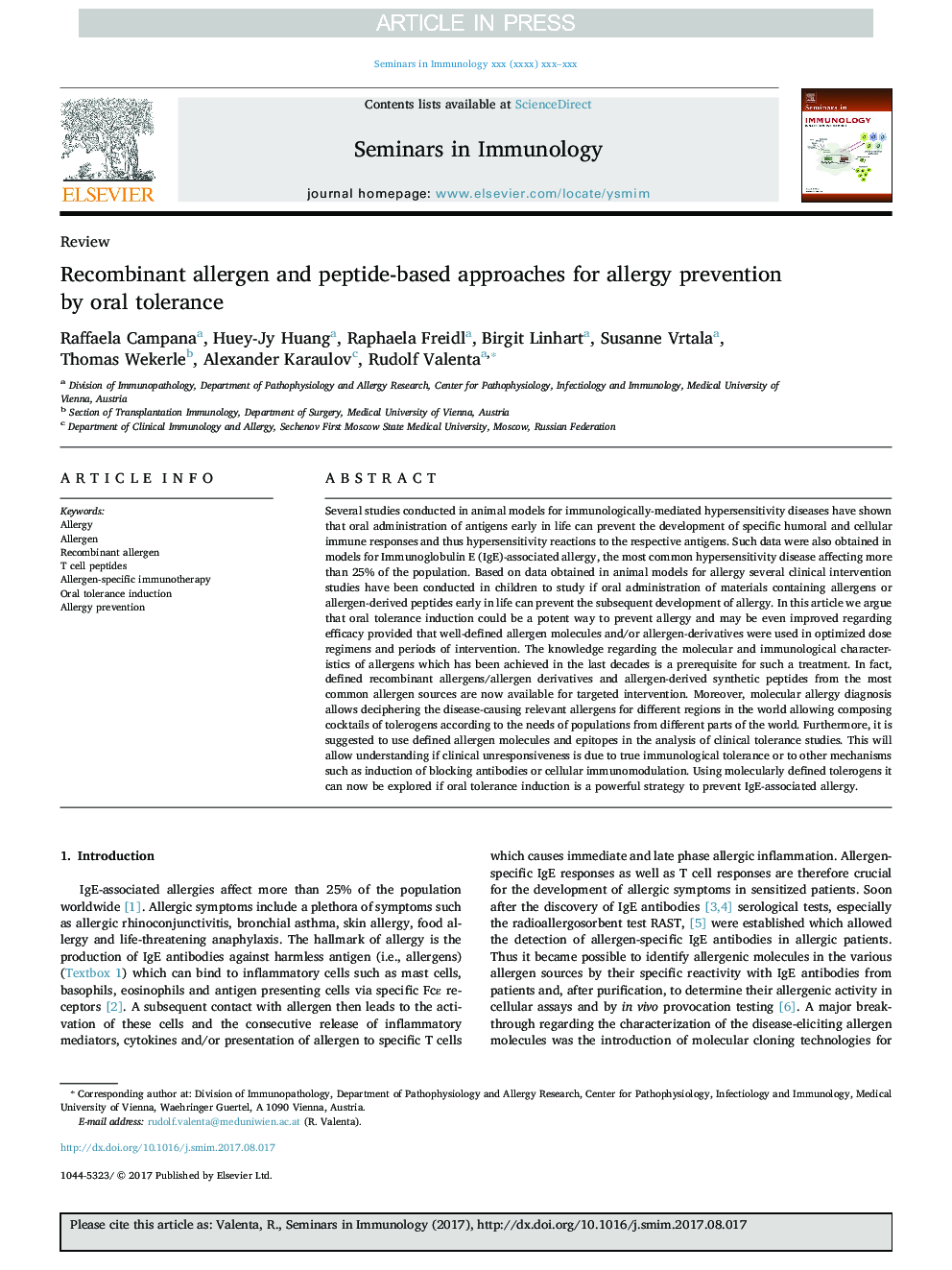| کد مقاله | کد نشریه | سال انتشار | مقاله انگلیسی | نسخه تمام متن |
|---|---|---|---|---|
| 8743756 | 1592654 | 2017 | 14 صفحه PDF | دانلود رایگان |
عنوان انگلیسی مقاله ISI
Recombinant allergen and peptide-based approaches for allergy prevention by oral tolerance
ترجمه فارسی عنوان
روشهای مبتنی بر آلرژی و پپتیدی بازآفرینی برای پیشگیری از آلرژی با تحمل دهانی
دانلود مقاله + سفارش ترجمه
دانلود مقاله ISI انگلیسی
رایگان برای ایرانیان
کلمات کلیدی
موضوعات مرتبط
علوم زیستی و بیوفناوری
ایمنی شناسی و میکروب شناسی
ایمونولوژی
چکیده انگلیسی
Several studies conducted in animal models for immunologically-mediated hypersensitivity diseases have shown that oral administration of antigens early in life can prevent the development of specific humoral and cellular immune responses and thus hypersensitivity reactions to the respective antigens. Such data were also obtained in models for Immunoglobulin E (IgE)-associated allergy, the most common hypersensitivity disease affecting more than 25% of the population. Based on data obtained in animal models for allergy several clinical intervention studies have been conducted in children to study if oral administration of materials containing allergens or allergen-derived peptides early in life can prevent the subsequent development of allergy. In this article we argue that oral tolerance induction could be a potent way to prevent allergy and may be even improved regarding efficacy provided that well-defined allergen molecules and/or allergen-derivatives were used in optimized dose regimens and periods of intervention. The knowledge regarding the molecular and immunological characteristics of allergens which has been achieved in the last decades is a prerequisite for such a treatment. In fact, defined recombinant allergens/allergen derivatives and allergen-derived synthetic peptides from the most common allergen sources are now available for targeted intervention. Moreover, molecular allergy diagnosis allows deciphering the disease-causing relevant allergens for different regions in the world allowing composing cocktails of tolerogens according to the needs of populations from different parts of the world. Furthermore, it is suggested to use defined allergen molecules and epitopes in the analysis of clinical tolerance studies. This will allow understanding if clinical unresponsiveness is due to true immunological tolerance or to other mechanisms such as induction of blocking antibodies or cellular immunomodulation. Using molecularly defined tolerogens it can now be explored if oral tolerance induction is a powerful strategy to prevent IgE-associated allergy.
ناشر
Database: Elsevier - ScienceDirect (ساینس دایرکت)
Journal: Seminars in Immunology - Volume 30, April 2017, Pages 67-80
Journal: Seminars in Immunology - Volume 30, April 2017, Pages 67-80
نویسندگان
Raffaela Campana, Huey-Jy Huang, Raphaela Freidl, Birgit Linhart, Susanne Vrtala, Thomas Wekerle, Alexander Karaulov, Rudolf Valenta,
